
The deburring of carbon steel articles, originating in cutting by water or laser, can be approached in many cases with dry processes, using the correct combination of appropriate media. Rollwasch® has formulated processes that can optimize also this kind of finishing, for the highest level of quality of the results, always keeping in mind their high competitiveness and simplicity.

Abrakem is a series of chemical accelerated deburring processes. They are isotropic processes where the chemical compound operates a conversion on an infinitesimal film of the surface, while the media mechanically removes this film. This action, repeated “n” times during the cycle, determines an ideal surface finishing and the respect of both edges and geometry. The second phase of this process is represented by the passivation and final polishing.

Technology for servo-assistance of vibratory finishing processes with rectangular machines for particularly long and unbalanced components in weight (e.g. turbine blades, steam, etc.).
This patented technology allows mechanically assisting the gripping of heavy and unbalanced pieces and managing their loading, processing and unloading from rectangular vibrofinishing machines, also by interacting with pick & place robots.

The ball burnishing is a wet process of micro hammering of the metal surface with specific media in stainless steel (AISI-420-C) that determines the brightness. Rollwasch® was the first company in the word to introduce this process combined with high frequency machines (3000rpm).

Blisk Surf is a specialized branch of the Wave Finishing process, specifically dedicated to the surface finishing of BLADED DISCS (aerospace, disc with turbine blades).
The need for special design tanks, special robots and accessories, makes of Blisk Surf a particular specialization of Wave Finishing technology.

The vast majority of the classic processes are wet processes, with plastic or ceramic abrasive media and with liquid chemical compounds (in some cases powdered).

The DIA Finish processes are wet process which are carried out with only one vectorial media, typically porcelain, and with two or more cycle phases. Usually the first phase is carried out with a paste which has an initial abrasive action, getting then more and more fine and polishing, while the second phase is carried out with a liquid detergent that makes the surfaces bright and very smooth.

Hybrid drag-finishing and sandblasting technology, thanks to which it is possible to finish components pre-assembled on the frame.
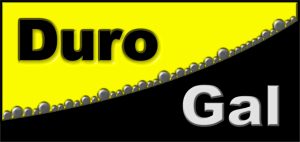
The new DUROGAL processes, if correctly applied, enable the «closure» of the surface, through dry processes, with improvements in the following electrochemical process, that can be optimized in aesthetic or economic results.

Dry vibratory finishing technology, mainly through the use of special “HPM” (High Performance Media) media.
With this technology, the suspended solids produced by the consumption of the HPM abrasive and the particles of the removed metals are drawn off – the result is highest level of quality.
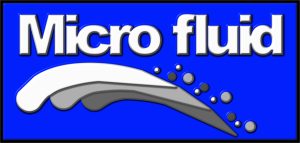
The Microfluid wet processes are carried out with special vectorial media (QF or in few cases, porcelain). They are characterized by their low consumption of water, such as to enable its elimination at every cycle instead of recycling it. In this way it is possible to avoid the typical problems connected to the accumulation of pollutants. One advantage of the Microfluid processes with the QF media consists in the possibility to dry the pieces/media mass before the final unloading, with the simple warm air intake.

Quattrofinish or, most commonly QF, is a family of media on which many innovative process technologies are based. One of the key features of the QF media is their life time, which is on average of about 10 to 20 times longer than the life time of a classic «plastic» or «ceramic» media.

Roto Dry is a series of processes that combine TEP, RotoTEP, RoboTEP, RDF or RSP machines with media series QF (Quattrofinish) or DF (DryFinish), with the possible use of specifically formulated chemical compounds. The Roto Dry finishing processes, therefore, provide a solution to optimize dry finishing, applied to rotating tanks or centrifugal force machines, and result to be an alternative and competitive solution compared to traditional methods.
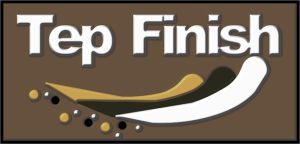
The Drag finishing processes (Tep Finishing) enable to cross new boundaries of dry finishing, thanks not only to the friction developed in the TEP and Ipermatic TEP machines, which ensures increased efficiency to the media, but also to Rollkemik products specifically formulated for these applications.

The Thermic finishing processes have found their ideal application on articles in die-cast brass and only in combination with machines specifically developed for this purpose. The heat generated by the friction of the brass pieces causes the removal of the joint mould line and enables to obtain a surface similar to that of a grinded article with much lower costs and qualitatively very good results.

The Wash & Dry processes are classic self tumbling processes for small metal parts in which the first phase the degreasing, pickling and the eventual polishing of the pieces is carried out, while the second phase is about a combined cycle of dripping-out and hot air drying.

Wave Finishing processes allow to cross new boundaries in the field of dry finishing, thanks not only to the centrifugal force developed in the RoboTEP and Tep Rotomatic machines, which provides increased density to the media, but also to Rollkemik products specifically formulated for these applications.

All advanced systems can be managed with an HMI on the system, corresponding to the control panel or mainframe and, upon request, can operate with a remote HMI – via Tablet – in WiFi mode.

VibroBLAST is Rollwasch’s® innovative patented hybrid technology that combines vibrofinishing and sandblasting, appropriately with the use of special “elastic” anti-shock media to ensure:
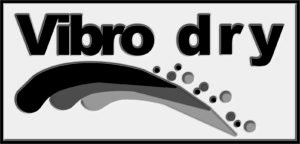
VibroDRY is an innovative patented dry finishing vibrofinishing technology by Rollwasch®, designed with specific products in order to utilize it without water, therefore free from silica (to avoid the pathologies of silicosis and asbestosis);
This technology has been perfected with a wide range of finishing, smoothing, deburring and dry polishing compounds;
Particular attention has been paid to the prevention of explosion phenomena attributable to aluminum, magnesium and titanium powders, thanks to the use of formulations with “A4” extension (inerting).

Drying with SICOR vibratory dryers, loaded with vegetal corncob granulate, is one of the most common drying processes. The corncob granulate is heated by an electric heating element, above which the media passes continuously during the process, absorbing the water drops from the workpieces and doing a sort of massage over their surface. In this way it is possible to prevent the creation of spots of mineral residues and to achieve a perfect drying result.

Rollwasch’s process for “Functional Surfaces” where the increase in surface tension of metal components is required (Naval, Aerospace, Metal Construction, Prosthetics, etc.).
Unlike the classic Shot Peening processes, which determines the increase in surface roughness values, the Vibro SHOT PEENING process respects the low roughness achieved by the previous finishing processes and “limits” itself to producing the effect of increasing surface tension, WITHOUT COMPROMISING ITS ROUGHNESS!

Habub is the name of a hot wind that distinguishes the drying processes with SICOR vibratory dryers in combination with a particular type of plastic media granulate, or plastic polymer of small dimensions, TECHNOPLAST series. In this case, an hot air flow is insufflated into SICOR machines at a temperature constantly monitored by a thermostat, for a superior drying result.

The processes of hot air drying are generally used when it is not possible to use those with drying media, due to their possible interlocking into holes or undercuts of the pieces to be dried. The most widespread series of machines is that of the DRYTUN drying tunnels, but there are also screw dryers ROTOROLL series and static ovens of various types.
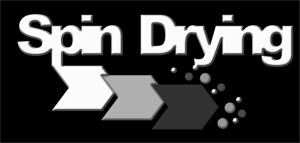
The drying of small metal parts of various types can also be performed with centrifugal dryers of the HYDROMETAL series.
© 2022 -2025 | Rollwasch® Italiana Srl | P. IVA e C.F. IT04561670151 – CCIAA 1023680 – REA Milano 1023680 Capitale Sociale Euro 2.500.000,00


